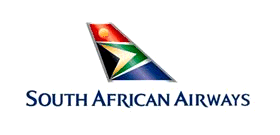 SAA plays into Ethiopian Airlines’ hands
SAA plays into Ethiopian Airlines’ hands
Much is made of Ethiopian Airlines’ relative success compared with SAA, but commentators often fail to mention that Ethiopian Airlines operates in a regulated market in the absence of any competition, similar to the SA market before 1991. Ethiopian faces no direct competition in its domestic and international markets. Its management is incomparable to the dross that has been appointed at SAA over the years.
What the geniuses in the department don’t understand is that Ethiopian’s intra-Africa strategy is juxtaposed to the best interests of SA. Ethiopian aims to establish Addis Ababa as the pre-eminent African hub, in competition with Johannesburg. It is not in its sovereign or commercial interest to pay any attention to Johannesburg, but rather to connect Southern Africa to the rest of the world via Addis Ababa. Johannesburg remains the biggest obstacle in that mission.
Ethiopian has already made great inroads due to geographical proximity to the biggest source markets and the sheer incompetence and deceit of SAA’s management. If the discussions are indeed happening, and given the department’s determination to condemn SA to SAA forever, it will be spectacularly self-defeating. SAA will be reduced to a regional bit player feeding air traffic to and from its masters in Addis Ababa.
The economic consequences to the Airports Company SA (Acsa) will be equally dire. The department’s intractable reflex of state control, no matter the consequences to SA and her citizens, can unfortunately not be considered “conscientious stupidity”; it’s just plain stupidity. SA has the expertise and infrastructure to manage a highly competitive aviation market without the state’s involvement. Regulate effectively and let the private sector, domestic and international, get on with it.
